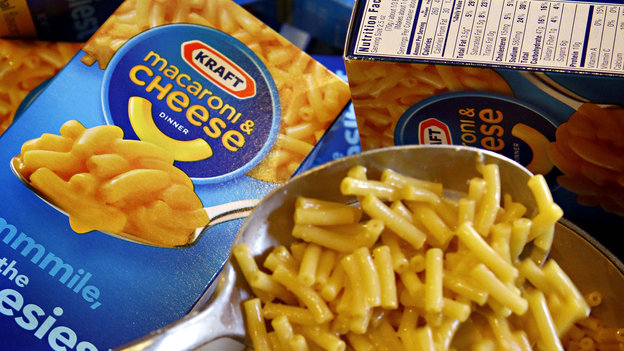
Post by Alan Yu, The Salt at NPR Food (11/1/13)
One of the iconic foods of American childhood is becoming a bit less startlingly orange.
Kraft Foods plans to remove artificial food coloring from mac and cheese products that are marketed for children, starting early next year.
Company spokesperson Lynne Galia told The Salt that the artificial dyes will be replaced with colors from spices such as paprika, annatto and turmeric. But she denies this is a response to an online petition asking the company to stop using the dyes in mac and cheese.
"We've been working on this relaunch for quite some time," Galia says. "It is completely in line with our company's ongoing effort to deliver better nutrition in our products."